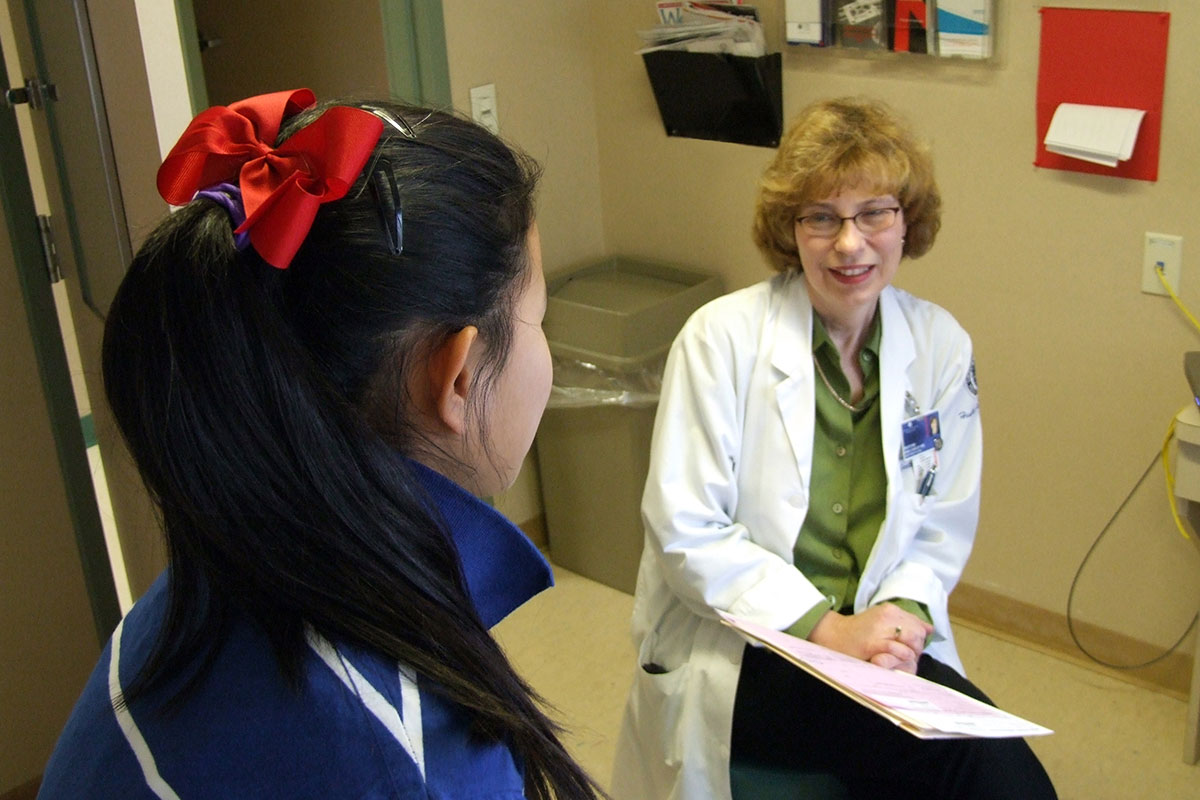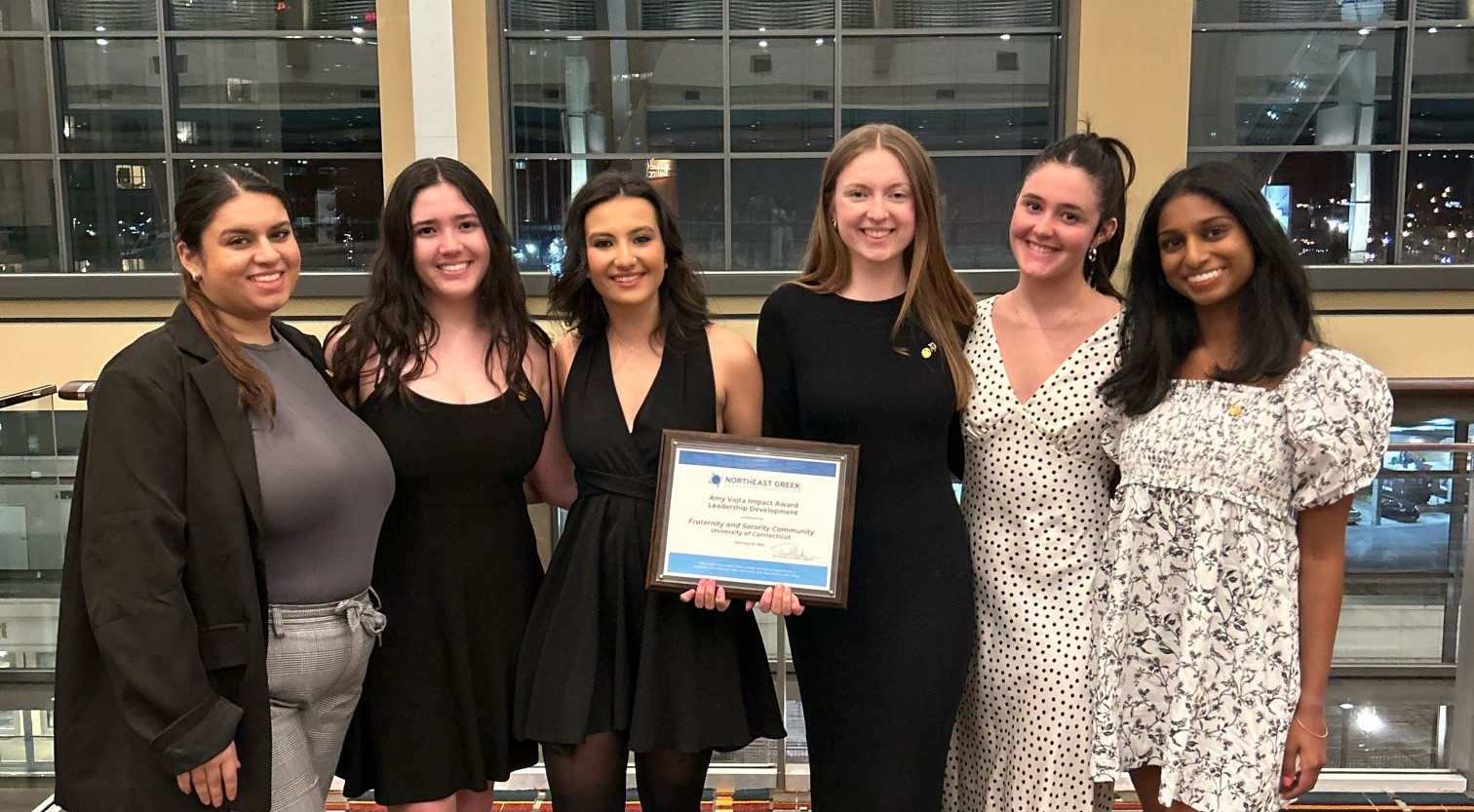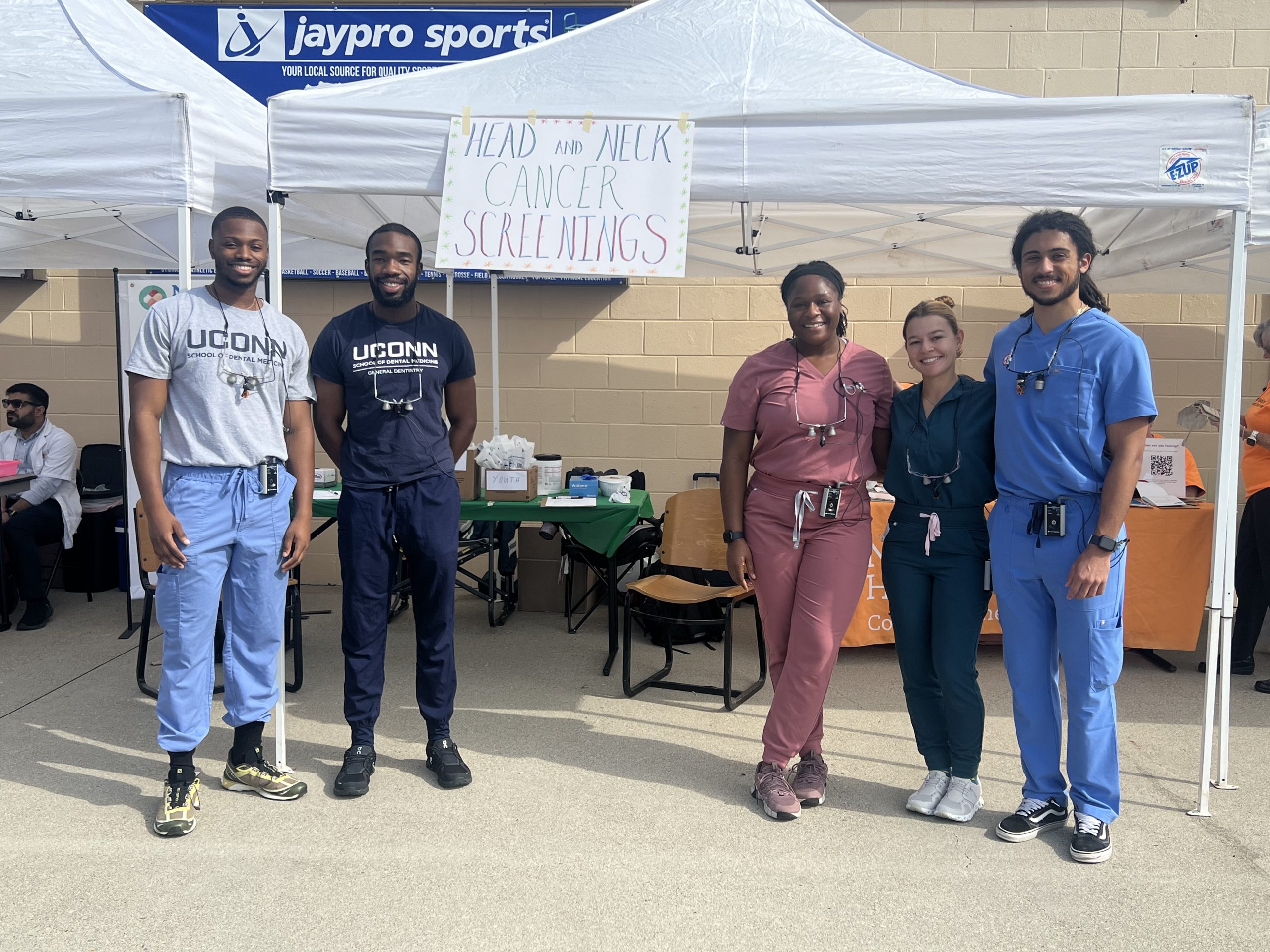Our websites may use cookies to personalize and enhance your experience. By continuing without changing your cookie settings, you agree to this collection. For more information, please see our University Websites Privacy Notice .
Division of Student Life & Enrollment

Student Health and Wellness

SHaW Travel Medicine
SHaW Travel Medicine provides a personalized, comprehensive and affordable consultation serving the needs of UConn students traveling internationally.
Your journey begins with gathering information about your trip to help us create a plan that meet s your specific needs based on both your health and travel itinerary.
Our use of travel specific technology assures that you are receiving the most current travel information and advisories from the Centers for Disease Control , the World Health Organization , the International Society for Travel Medicine and other agencies.
SHaW Travel Medicine Includes:
- Personalized consultations with members of the SHaW travel medicine team.
- An assessment of required and recommended medications and vaccines.
- Travel focused expert advice and health information.
- Up-to-date country-specific handouts on travel-related medical issues and advisories.
- International Certificates of Vaccination/The World Health Organization Card required for regions with yellow fever.
- Knowledgeable business office staff to explain and help navigate your insurance coverage and out-of-pocket expenses.
Start Early! Vaccines need time to become effective.
We recommend you complete the Travel Information Form at least six to eight weeks prior to your departure.
Step 1 → Call (860) 486-2719 to have a Travel Information Form published to your SHaW health portal. Step 2 → Complete and submit the Travel Information form. Step 3 → Once you submit the completed form, our travel medicine nurses will contact you to start the process prior to your departure.
Appointments:
- Travel consultations are required prior to receiving any travel vaccines or medications.
- Plan on appointments lasting 60 to 90 minutes, 45 minutes for the medical travel consultation and 15-30 minutes for vaccine administration.
- Review Travelers' Health | CDC for your destination(s).
- Review immunization records on your portal myhealth.uconn.edu and upload any missing vaccines.
- If you have a printed travel itinerary for your trip, please bring that to your visit.
- There is much you can do to improve the quality of your travel experience and prevent unwanted illness and injury. We encourage you to carefully read and consider our Travel Preparation information prior to your consultation.
- Immediate Care
- Alcohol, Other Substance Use & Support
- Allergy Clinic
- Fees & Insurance
- Immunizations
- Injury & Illness
- Lab Testing
- Mental Health
- Overnight Care
- Physical Activity
- Preventive Care & Health Screening
- Recovery Support Services
- Sexual & Reproductive Health
- Sports Medicine
- Travel Medicine
- Wellness Coaching

Services & Appointment Information
- Current and individualized health risk information and recommendations based on your travel itinerary, previous immunizations, and individual health needs.
- Malaria prophylaxis and/or treatment for travel-related illnesses specific to your destination.
- Individualized immunizations.
- Links/printouts for each country of destination containing health and safety information.
- Post-travel care and consultation, as needed.
- Recommendation for traveler’s first aid kit and water purification.
APPOINTMENT INFO:
- Schedule an Appointment by calling 860 486-4700.
- Bring all the specific information you have about your travel plans (cities and destinations, accommodations, etc.) so that the provider can make a thorough assessment of the health risks you could encounter.
- Visits can be accomplished on one day or may possibly need a return visit for immunizations.
- Please upload your complete immunization history/records at myhealth portal prior to your visit.
Student Health and Wellness is now offering travel consultations for destinations that require or recommend the yellow fever vaccine . Visit the CDC: What is Yellow Fever for more information.
Travel Tips & Advice
Plan Ahead: It is important to plan ahead as some vaccinations require a series of immunizations and must be completed a month or more before traveling.
- Plan to obtain necessary travel vaccinations beginning 4 to 6 weeks before your trip.
- If there is a risk of malaria where you will visit, wear protective clothing, sleep behind netting or screening and use repellents to avoid mosquitoes transmitting malaria. Be sure to obtain and take preventive medication as prescribed.
- Inquire whether any countries on your itinerary are reporting yellow fever, or require vaccination against this disease for entry, by contacting the International Traveler’s Medical Service or your local health department.
- Take along a first-aid kit including an extra supply of medications you take regularly.
- Carry an extra pair of prescription glasses or contact lenses in case yours are lost or broken.
- Be aware of the effects that jet lag, altitude, climate, food or water may have on any chronic illness.
- To help prevent diarrhea during travel to developing countries, avoid eating raw vegetables and fruits you cannot peel yourself. Also, avoid untreated water and ice.
- If you become ill after returning home, remember to inform your health care provider your recent travel.
Information for Travelers: The Travelers’ Health website from the Centers for Disease Control and Prevention provides travel notices and articles related to travel-health that will help world travelers prepare for and manage illness and injury abroad.
Passport Health: Travel Immunizations/ Travel Health
CDC: Infectious Diseases Related to Travel
Our websites may use cookies to personalize and enhance your experience. By continuing without changing your cookie settings, you agree to this collection. For more information, please see our University Websites Privacy Notice .
UConn Today
January 8, 2019 | Chris DeFrancesco '94 (CLAS) - UConn Health
Good Health Information Travels Far
Before you pack your bags for international travel, you may want to learn about health risks specific to that area of the world and how you can protect yourself.

Dr. Nina Carley, UConn Health infectious diseases physician, sees a patient at the International Travler's Medical Service office in West Hartford. (UConn Photo/Chris DeFrancesco)
Are you making travel plans for 2019? Depending on the destination – especially if it’s in a developing country – your research probably shouldn’t stop at flights, accommodations, and attractions, say UConn Health physicians.
It would be wise to also look into the potential health risks specific to that area of the world, and plan accordingly. Those plans may include pre-trip counseling and immunization from medical experts who keep tabs on what’s going around overseas.
For example, transmission of the Zika virus, which can cause serious birth defects, is still being reported in many regions, including Mexico, the Caribbean, the Pacific Islands, South and Central America, and India.

A polio outbreak recently was reported in Niger, and the Democratic Republic of Congo has been dealing with an Ebola outbreak.
“Although these issues grab the headlines, other illnesses, including hepatitis A, malaria, typhoid, and diarrheal diseases are much more likely to affect the average traveler,” says Dr. Kevin Dieckhaus , infectious diseases physician who heads the International Traveler’s Medical Service at UConn Health. “These common issues are also are among the most preventable.”
Based on where you’re headed, your doctor can provide you with tips on avoiding common problems and vaccination against what you might encounter – such as typhoid, yellow fever, meningitis, Japanese encephalitis, or rabies – as well as send you with medications, such as pills for malaria prevention or antibiotics for diarrhea, to have on hand if needed.
Infectious diseases physicians are well-versed in travel health concerns and can provide the advice and medication necessary to give you and your family the best chance of staying healthy during your trip and coming home healthy.
“In addition to vaccinations and medications, we also can counsel on travel health insurance needs, access to medical care where you’re going, and even security advisories,” Dieckhaus says. “We provide both pre-travel consultations as well as evaluation of those who return with travel-related illness.”

Another resource for those who could be pregnant, plan to become parents, or are breastfeeding, is MotherToBaby (MTB), a service of the Organization of Teratology Information Specialists. The group MotherToBaby CT , located at UConn Health, is the Connecticut affiliate.
“If you are pregnant or are planning a pregnancy, contact MotherToBaby or review areas of concern for travel on the CDC website before you pay for airfare or hotel rooms,” says Ginger Nichols, a certified genetic counselor at MotherToBabyCT, which provides information on potential exposures to women who are nursing, pregnant, or are considering pregnancy.
The ideal time to meet with a medical expert is at least four to six weeks before your planned trip. Post-travel evaluations also can be helpful.
Recent Articles

October 18, 2024

Meet New Director of Judaic Studies, Jessica Cooperman
Read the article

UConn’s Panhellenic Council Recognized with National Excellence Award

October 17, 2024
Dental Students Honor Hispanic Heritage
Our websites may use cookies to personalize and enhance your experience. By continuing without changing your cookie settings, you agree to this collection. For more information, please see our University Websites Privacy Notice .
UConn Today
- School and College News
- Arts & Culture
- Community Impact
- Entrepreneurship
- Health & Well-Being
- Research & Discovery
- UConn Health
- University Life
- UConn Voices
- University News
April 24, 2024 | Carolyn Pennington - Schools of Medicine and Dental Medicine
UConn Health Minute: Travel Tips
Up to half of travelers can experience a medical illness when abroad. Dr. Kevin Dieckhaus, director of Travel Medicine at UConn Health, says some simple precautions can help you stay healthy during your trip.

Recent Articles

October 18, 2024
Meet New Director of Judaic Studies, Jessica Cooperman
Read the article

UConn’s Panhellenic Council Recognized with National Excellence Award

October 17, 2024
Dental Students Honor Hispanic Heritage
Our websites may use cookies to personalize and enhance your experience. By continuing without changing your cookie settings, you agree to this collection. For more information, please see our University Websites Privacy Notice .
Global Affairs
Global Partnerships & Outreach
Visit uconn: getting here.
Bradley International Airport (BDL)
Bradley International Airport is the closest to UConn. You can arrange a UConn Airport Shuttle (~$60). Reservations are required one week in advance. Exact fare amount due upon arrival. Alternatively, you can arrange a car service ( Lindsey Limousine ) or take a taxi (~$85). Taxis are available outside of the airport but if one is not readily available, please go to the Ground Transportation desk and they can arrange a taxi for you.
Peter Pan Bus
Peter Pan buses come to UConn Storrs twice a day from Hartford, New York City, Boston and other cities.
- In Storrs, the Peter Pan bus picks up and drops off on Hillside Rd. in front of the UConn Co-op.
- In Hartford, the Peter Pan bus picks up and drops off at Union Station, bus depot and train station (One Union Place, Hartford, CT 06103).
- In New York City the Peter Pan bus picks up and drops off at the Port Authority Bus Terminal (8th Ave and 42nd St).
- In Boston , the Peter Pan bus picks up and drops off at Logan Airport (BOS) outside of Terminals A, B, C, E.
From the West – Interstate 84 East to Exit 68. From exit, take a right onto Route 195, and follow for 7 miles to campus.
Alternate directions from the West – Interstate 84 East to Interstate 384 East. At end of Interstate 384 East, take left fork to Route 44 East. Follow Route 44 East to intersection with Route 195. Take a right onto Route 195 and follow the signs to campus.
From the East – Interstate 84 West to Exit 68. From exit, take a left onto Route 195, and follow for 7 miles to campus.
From the Southeast – Interstate 95 to 395 North. Take Exit 81 West to Route 32 North. Follow Route 32 North to Willimantic. In town, turn right and go over bridge. Continue straight through the light and follow 195 North for 8 miles to campus.
Personalize your directions with Google Maps .
View the campus map or download the PDF version .
Visitors may park in either the North or South parking garages.
Parking garages are marked with red arrows on the map below.

IMAGES